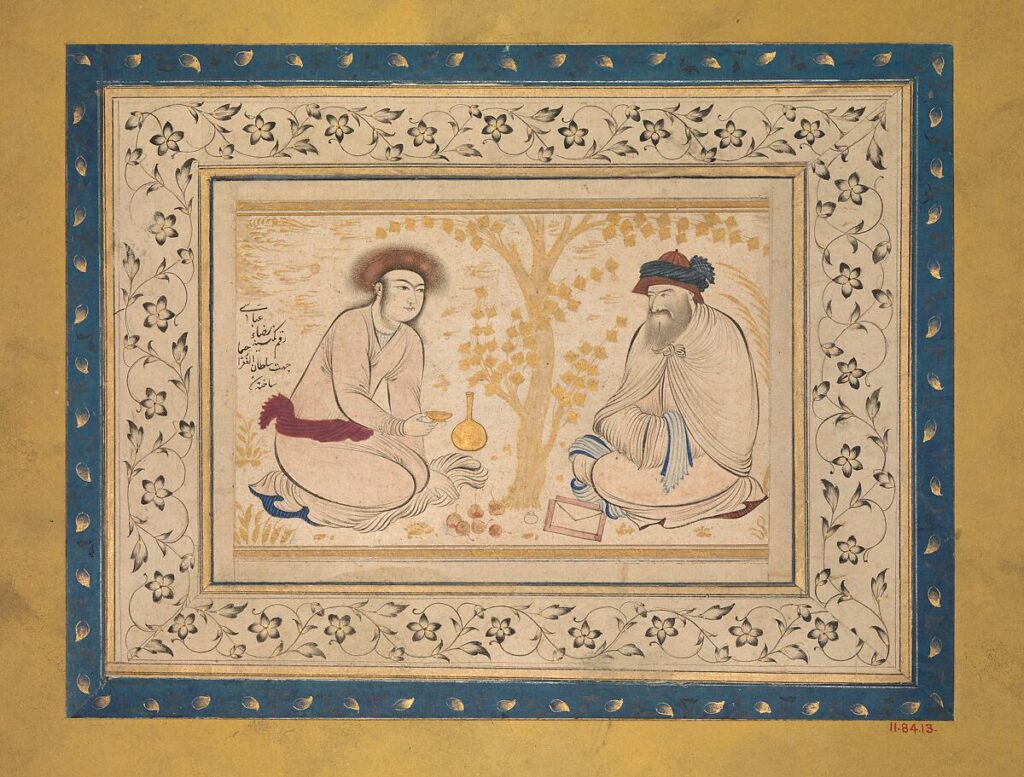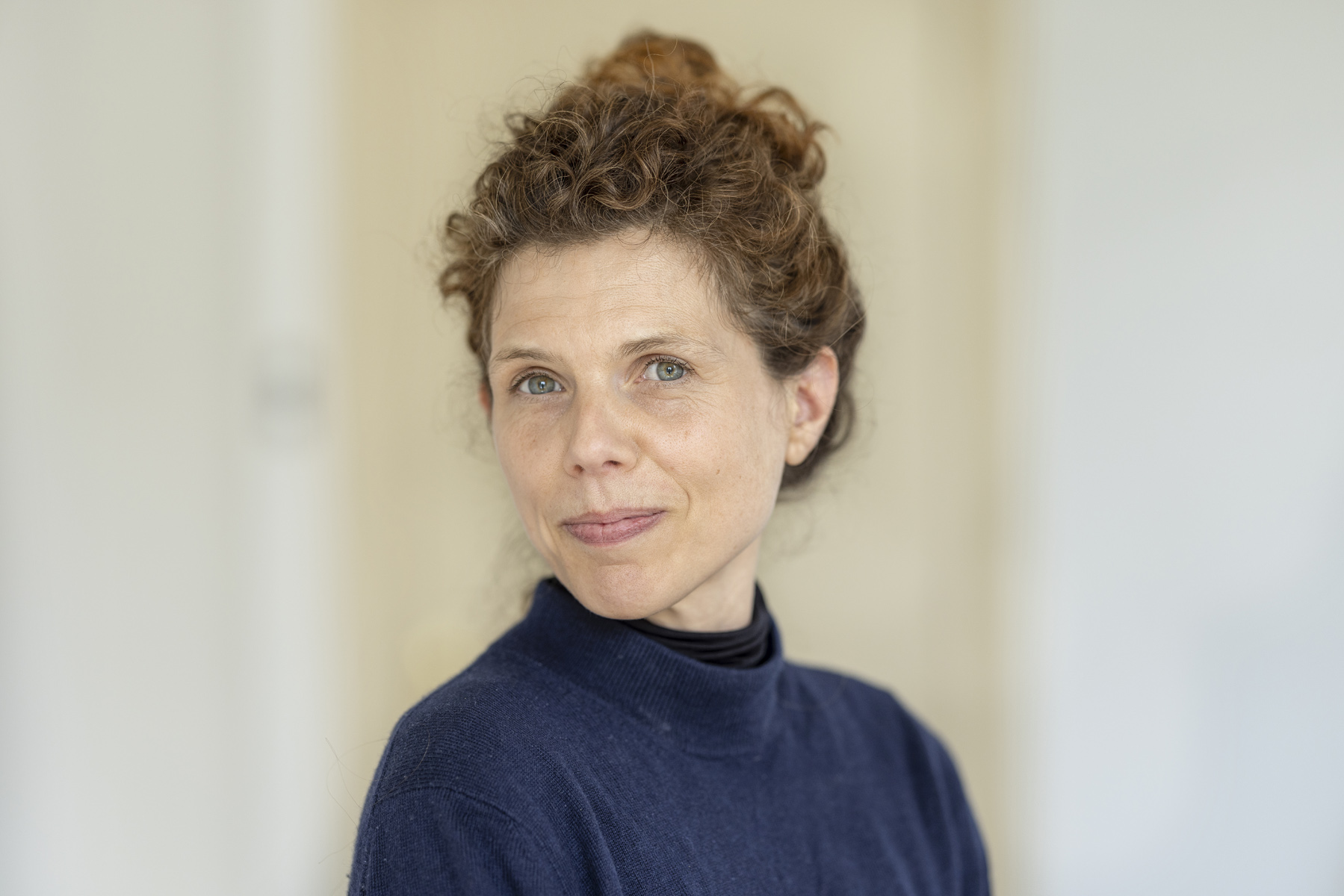Please register at: https://students.uu.nl/en/academics/minors/medieval-literature
For over thousand years, Islamic mysticism, known as Sufism, has been the beating heart of spirituality in the Muslim world, from the Balkans and the Middle East and Africa, to India, and the Indonesian Archipelago. It remains a living spiritual tradition that gives meaning to life, creating a sense of purpose, through mindful meditation and the purification of the soul. In this course, we will study mystical philosophy through peerless poetry composed by sages such as Rumi, through the fascinating biographies of woman mystics such as Rabiʿa of Basra and the works of the exceptional Andalusian mystic, Ibn al-ʿArabi.
Over seven weeks, we will examine key mystical concepts and practices, including the “Religion of Love,” asceticism, hagiography and the notion of the “perfect human being” as a bridge between God and creation. To express their philosophy, mystics often use didactic stories in the form of allegories and metaphors, depicting the soul’s longing to return to its original home. They examine such narratives to demonstrate how the motif of the spiritual journey serves as a vehicle to guide human beings towards self-knowledge and illumination.
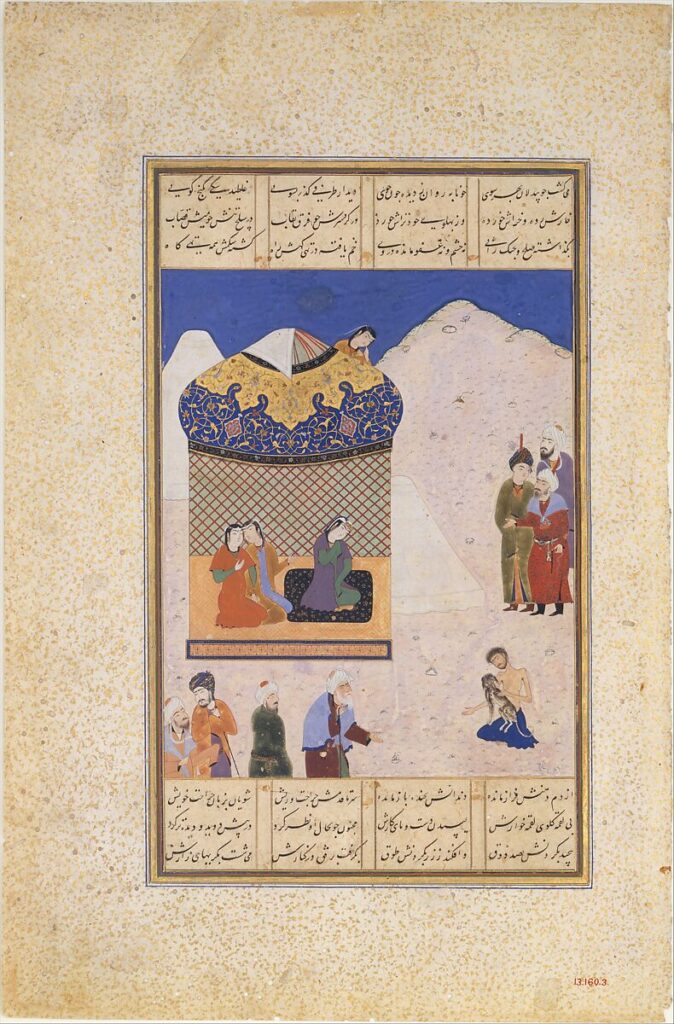
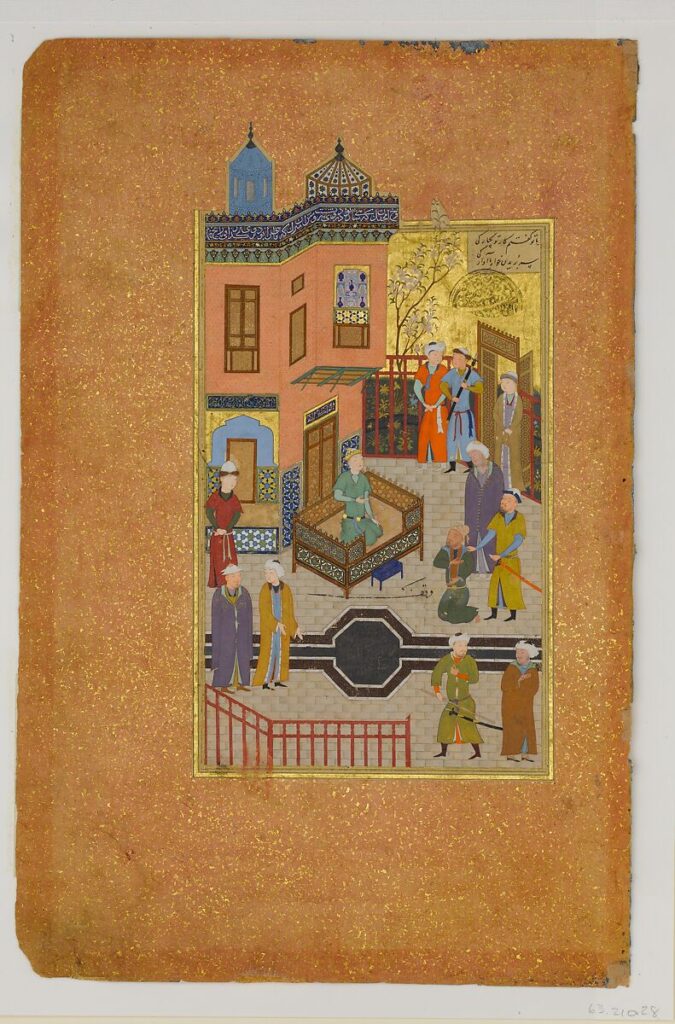
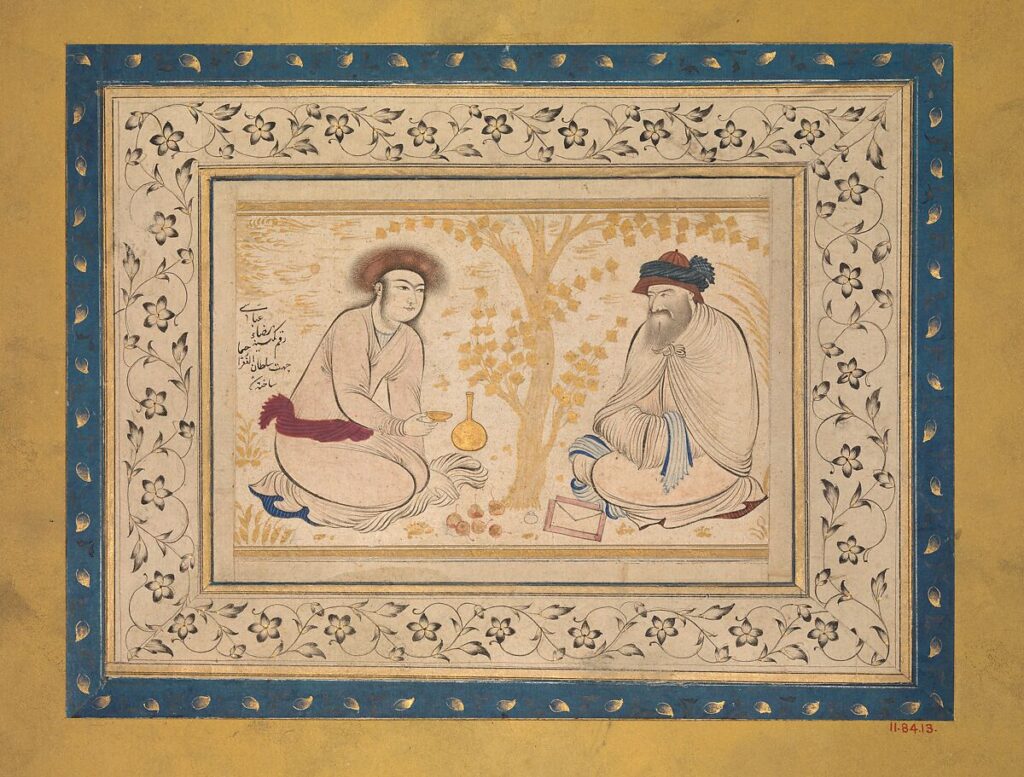
Images: “Laila Visiting Majnun in the Desert“, “The Beggar who Professed his Love for a Prince” and Youth and Dervish (The Metropolitan Museum of Art)
Sufism has had an impact on political thinking from early times. A fascinating example is the Indian Emperor Akbar (r. 1556-1605) who introduced the “Divine Religion” (din-e elahi), which advocated equality among religions, striving for a “universal peace.” We will analyse various texts, paintings, and the role of music in such political contexts. The impressive material culture produced by the mystics also has a political component, not just because of the transgressing the laws but also because of political accountability. The mystics did not remain on the sidelines of politics: they usually blessed the political leaders who wanted to go war, and some of the mystics even participated in the violent fights, especially when the Islamic countries faced the colonial European powers.
In addition, we will examine how nonconformist mystics have shaped Islam and how Sufi spirituality continues to inspire people in today’s world. Alongside the study of mesmerising rituals such as the Whirling Dervishes, we will study the powerful role Sufis played in revolting against indigenous rulers or against foreign powers. We will address questions such as, how have mystical ideas and doctrines been applied to political ideologies? How does the lasting attraction of Sufism reveal itself in contemporary political thinking and cultural expression, both in the West and within the Muslim world?
In sum, the course invites students to discover a new worldview that contributes to their personal development through an emphasis on a sense of purpose, reflection, and meditation, while also reflecting on the kaleidoscopic nature of the mystical dimensions of Islam that has contributed to art, poetry, literature, architecture, and political ideologies for more than a millennium.
The seminars of this course are interactive, inviting students to give a presentation which will be used to open a discussion on the assigned weekly literature. We also organise debates between students on central topics of Islamic mysticism and its relationship to a wide range of Islamic principles and current issues in society.
Provisional Weekly Surveys
Week One: The Religion of Love
Week Two: Encountering the soul through inner journey
Week Three: Wandering dervishes, wise fools, and their criticism of God’s creation
Week Four: Rumi’s life, work, teaching, and legacy
Week Five: Sufi rituals: ecstatic music and dance
Week Six: The doctrine of the perfect human being
Week Seven: A Reception History: Colonialism, Globalism, and New Age Spirituality
Further Reading
Ahmed, S., What is Islam? The Importance of Being Islamic, Princeton: Princeton University Press, 2016.
Bruijn, J.T.P. de, Persian Sufi Poetry: An Introduction to the Mystical Use of Classical Poems, Richmond VA: Curzon Press, 1997.
Green, N., Sufism: A Global History, Chichester, West Sussex: Wiley-Blackwell, 2012.
Handbook of Sufi Studies: Sufi Institutions, Vol. 1, ed, A. Papas, Leiden: Brill, 2021.
Handbook of Sufi Studies: Sufi Cosmology, Vol. 2, eds., C. Lange and A. Knysh, Leiden: Brill, 2023.
Handbook of Sufi Studies: Sufism in Western Contexts, Vol. 3, eds., M.K. Hermansen and S. Zarrabi-Zadeh, Leiden: Brill, 2023.
Knysh, A., Islamic Mysticism: A Short History, Leiden: Brill, 2000.
Lewis, F.D., Rumi: Past and Present, East and West: the Life, Teachings and Poetry of Jalāl al-Din Rūmī, Oxford: Oneworld, 2000.
Ridgeon, L., (ed.) Routledge Handbook of Sufism, Abingdon: Routledge, 2021.
Ridgeon, L., (ed.) The Cambridge Companion to Sufism, Cambridge: Cambridge University Press, 2014.
Schimmel, A., My Soul Is a Woman: The Feminine in Islam, translated by Susan H. Ray, New York: Continuum, 1997, reprinted 2007.
Sells, M.A., Early Islamic Mysticism: Sufi, Qur’an, Miʿraj, Poetic and Theological Writings. New York: Paulist Press, 1996.
Seyed-Gohrab, A.A. (ed.) Dancing before God’s Beauty: Exploring Rūmī’s Poetic Universe, Mystical Philosophy and Reception History, Berlin: De Gruyter, 2025.
Seyed-Gohrab, A.A., Soefisme: een levende traditie, Amsterdam: Prometheus / Bert Bakker, 2015, third edition.
If your interested, please register at: https://students.uu.nl/en/academics/minors/medieval-literature

